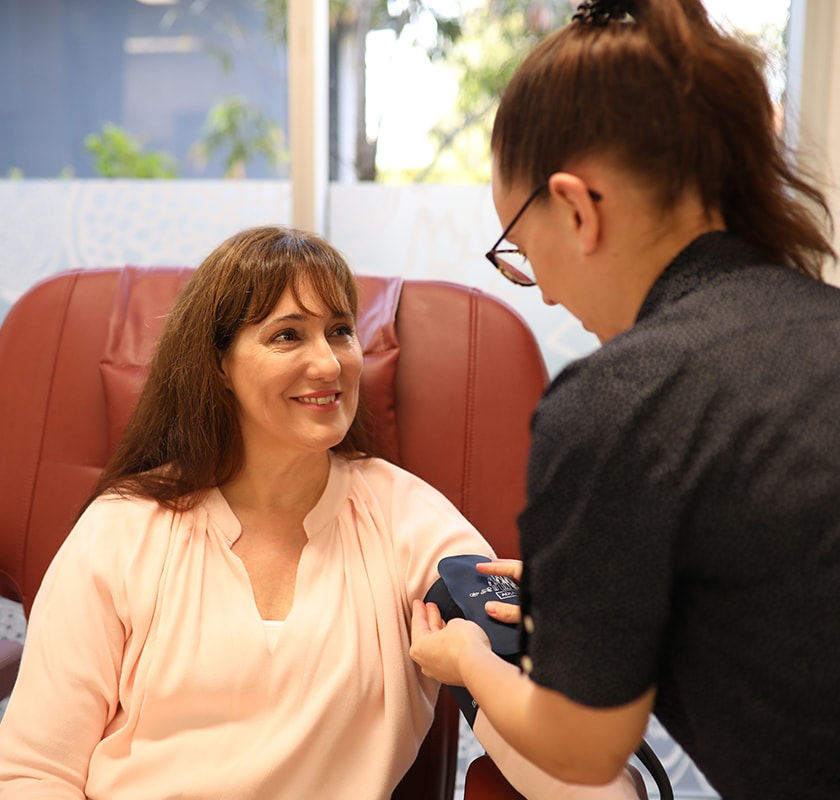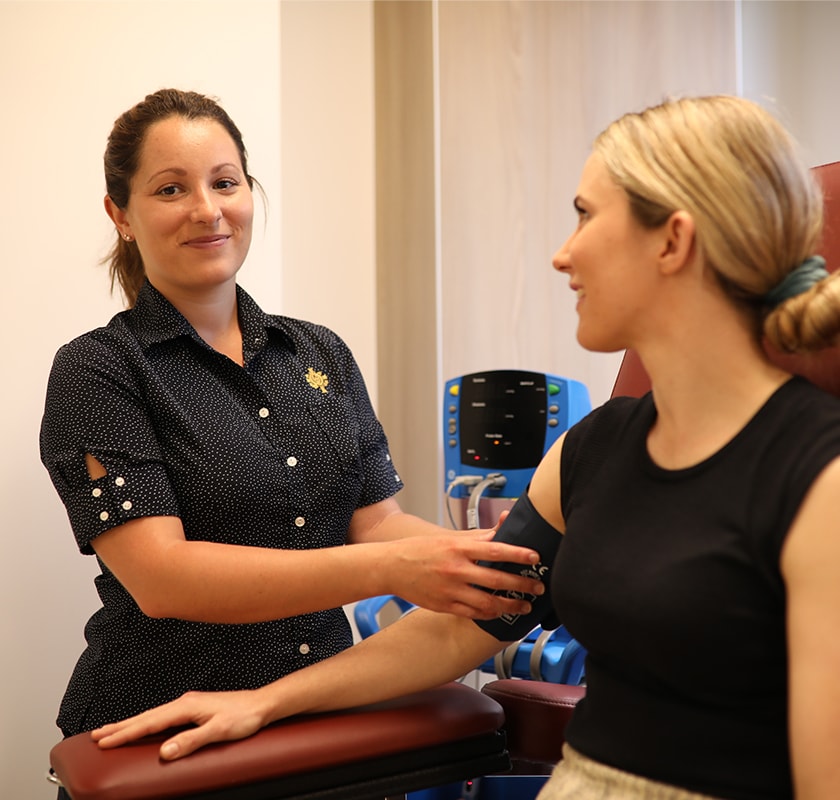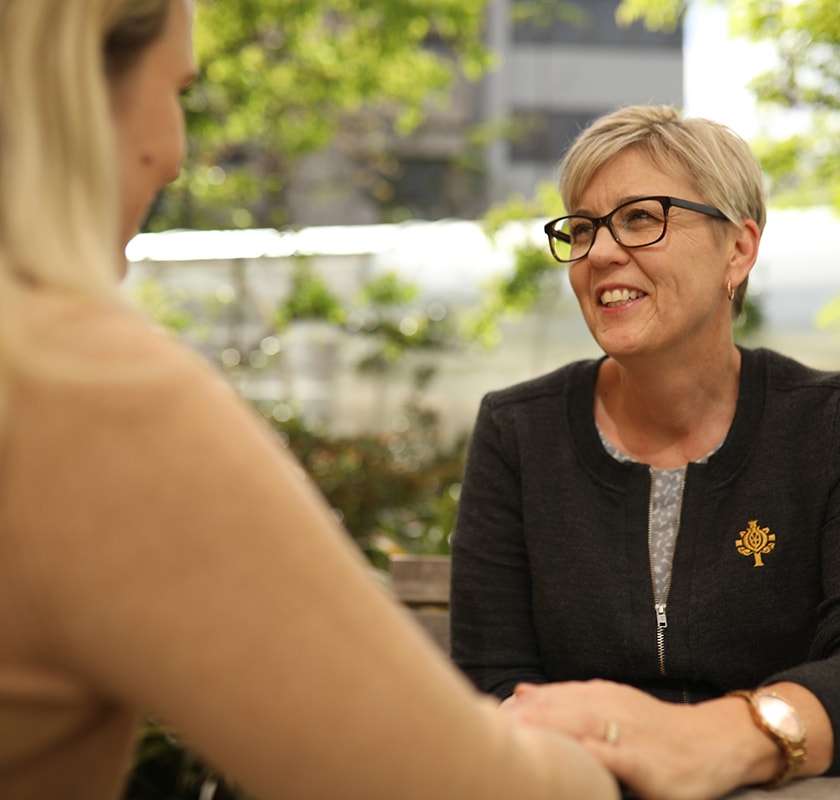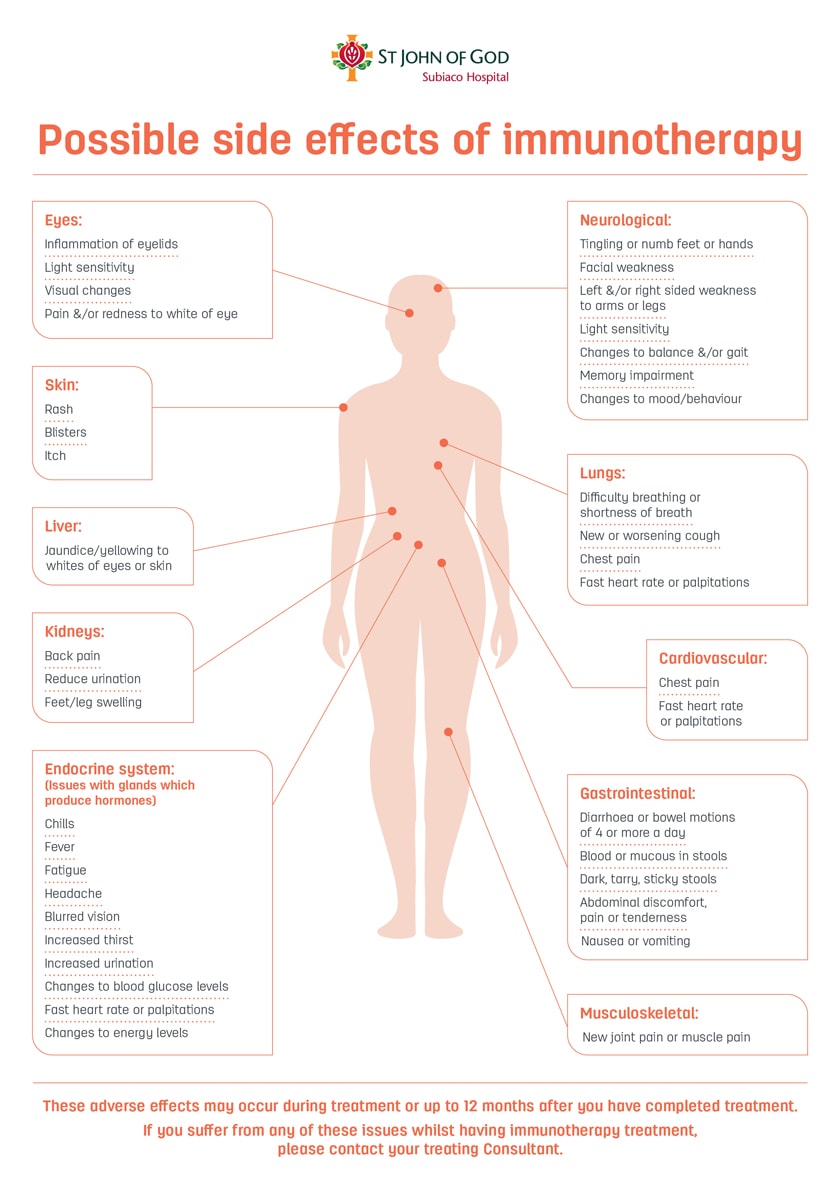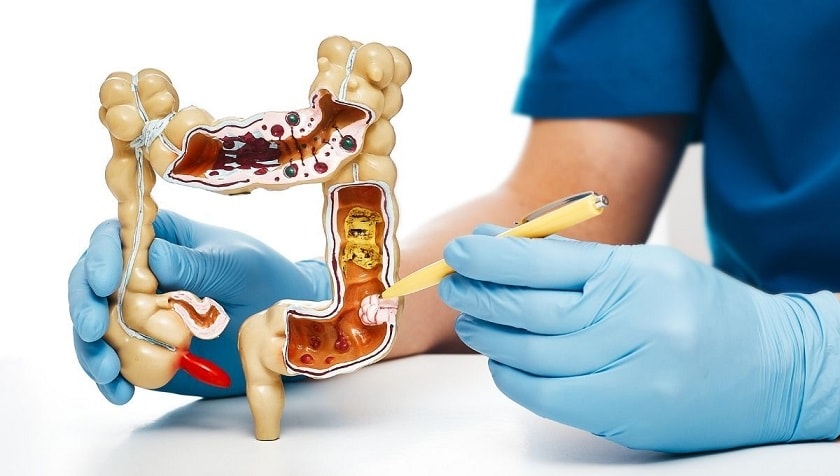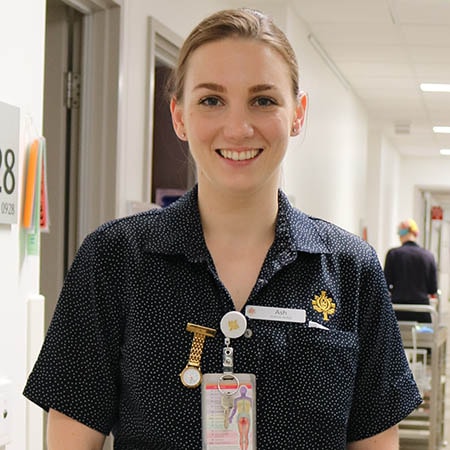Neutropaenia
Neutrophils are a type of white blood cell and a low count of this cell, called neutropaenia, can put the body at an increased risk of developing infections.
Most infections are harmless when the body has a normal neutrophil count however, after chemotherapy a minor infection can develop more rapidly into a serious illness that may need urgent treatment and antibiotics.
Chemotherapy patients are most at risk of infection when their white blood cells are at their lowest and this is around seven to 14 days after receiving chemotherapy.
Anaemia
A low number of red blood cells, known as anaemia, means that your body will not be able to carry as much oxygen to the body’s tissues.
This can lead to side effects and some may make it difficult to carry out activities of daily living, this includes:
- Fatigue
- dizziness
- shortness of breath
- weakness
- pale skin tone
In some instances a blood transfusion that can increase the red blood count.
Thrombocytopenia
Platelets help your blood to clot and a low count is known thrombocytopenia.
This can lead to a greater risk of bleeding which may cause increased bruising, nose bleeds, small dark purple spots on the skin or blood in urine or faeces.
If your platelet count is very low a platelet transfusion can boost this count and reduce the risk of bleeding.
Reducing the risk of infection
It is important to take extra precautions while you are undergoing chemotherapy in order to reduce the chance of infection and keep you well, these include:
- avoiding contact with people who are obviously unwell or who have a known infection, but don’t be afraid to go out
- showering every day and wash hands before preparing food or eating, after going to the toilet and after touching pets
- if you have a PICC or Hickman® line, making sure that it is covered before showering. Do not swim or submerge your arm in water
- avoid dealing with animal excreta, soils in the garden and potting mix
- use enemas and suppositories only if advised by your oncologist or haematologist
- avoid exposure to live vaccines, including chicken pox or polio. If your children are undergoing immunisation with live vaccines speak with your doctor, nurse or pharmacist first.
- not sharing drinking cups, utensils and personal items such as toothbrushes
- washing your mouth with salty water after every meal and before bed.
- brushing teeth with a soft toothbrush every morning and evening
- using an electric razor to shave in order to avoid cuts to the skin.
If you are undergoing chemotherapy treatment and have any concerns about your health please speak to your doctor or nurse as soon as possible.

